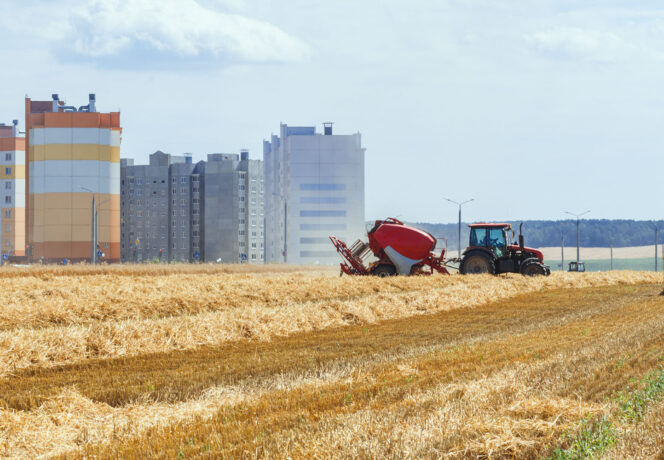Shared Responsibility: Public Opinion of Agricultural and Food Policy
Photo: AI-generated
using Adobe Firefly
(Prisca Koller, 2025)
Swiss citizens think that government, farmers, retailers and consumers are jointly responsible for transitioning towards more sustainable food systems. These are the findings of two surveys conducted by Agroscope and ETH Zürich.
The transition to more sustainable food systems is a core theme of agricultural and food policy. A study conducted by Agroscope and ETH Zürich now reveals how people in Switzerland perceive the responsibilities of different groups in this respect – government, farmers, retailers and consumers.
The researchers analysed the results of two representative surveys conducted in German-speaking Switzerland. The first focussed on production-oriented agricultural policy goals such as animal welfare, biodiversity or fair incomes for farmers. The second survey looked at demand-side measures for sustainable food consumption, such as information campaigns or taxes on certain products. Participants were asked whether government, farmers, retailers and/or consumers are responsible. Socio-demographic characteristics, political orientation and attitudes to environment and health were also considered.
All stakeholders are held responsible
The results show that many Swiss citizens have a food systems mindset and consider government, farmers, retailers and consumers to be jointly responsible. Respondents perceive all stakeholders as responsible to highly responsible, with little in the way of nuance regarding either production or consumption (Fig. 1).
In the survey of production-oriented goals – traditional agricultural policy – the government was named as the stakeholder with the greatest responsibility. In contrast, for consumer-based measures, the highest level of responsibility was ascribed to consumers. This may reflect a societal expectation that individuals should contribute to sustainability through their purchasing decisions.

Regression analysis showed that the perceived responsibility of the stakeholders is a significant predictor of willingness to accept policy measures. In particular, the perceived responsibility of the government correlated strongly with the acceptance of sustainable food consumption measures. Citizens who hold the government responsible for consumer-related issues tend to be more willing to accept different measures. This also applies to restrictive measures such as additional taxes on certain products or special provisions for canteen menus which could limit personal consumption habits.
Awareness of holistic food system
Overall, the study shows that most Swiss citizens already have a holistic view of agricultural and food policy. The respondents understand the close ties between food production and consumption and believe that public and private stakeholders have a shared responsibility in both areas. Accordingly, citizens believe that all stakeholders are responsible for achieving policy goals to create more sustainable food systems.
New government responsibility for food policy
The study also showed that consumer-based policy measures tend to be better accepted when they are perceived to be the government’s responsibility. Since agricultural policy has traditionally focussed on the production side, and consumer-based measures are relatively new in terms of food policy, it follows that this area of government responsibility is also new. Policymakers seeking to implement such measures should avoid communicating this new responsibility in a manner that may be regarded as paternalistic meddling with personal food choices.
Conclusions
- Ctizens of German-speaking Switzerland were asked about responsibilities for sustainable agricultural and food systems.
- Many people have a holistic understanding and view agricultural and food issues as part of an integrated food policy in which the government takes new responsibility for consumer measures.
- Most respondents assign a high level of shared responsibility to government, farmers, retailers and consumers for production- and consumption-related issues.
- The study also showed that the more the government was perceived to be responsible, the higher the acceptance of different food policy measures.
Bibliographical reference
Shared responsibility: understanding the role of governments, farmers, retailers, and consumers in food system policies.



